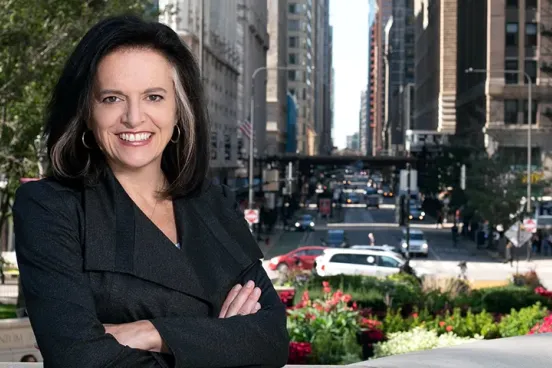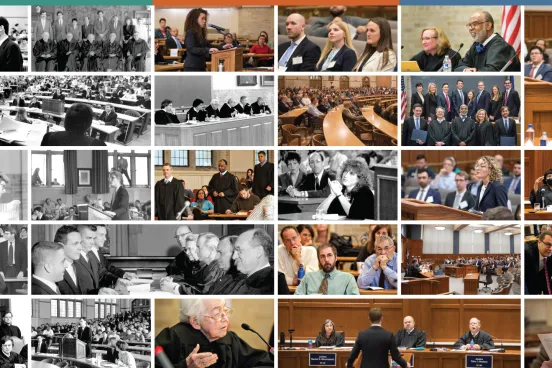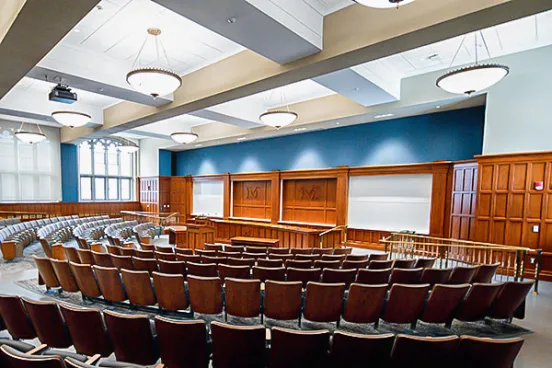The Hon. Avern Cohn, ’49, who served for 40 years on the bench of the U.S. District Court for the Eastern District of Michigan, died on February 4, 2022. He was 97.
Known for his intellect, wit, and temper, Cohn was appointed by President Carter in 1979. He retired in 2019 at the age of 95.
“Judge Cohn’s super power was his curiosity. He read voraciously, and he would send you articles about topics you had discussed with him weeks earlier,” says Barbara McQuade, ’91, a former U.S. attorney for the Eastern District of Michigan. “No matter was too small to be worthy of his attention. I recall a time when a lawyer before him remarked that his case was not very important. The judge replied that the case was the most important thing in the world to him at that moment.”
Cohn grew up in Detroit and enrolled at the Law School in 1946 without an undergraduate degree through a loophole for veterans with some college credits. After graduating, he worked for his father, Irwin Cohn, ’17, a founding partner of Honigman Miller Schwartz & Cohn in Detroit.
Cohn served on the Michigan Social Welfare Commission, the Michigan Civil Rights Commission, and the Detroit Board of Police Commissioners. His appointment to the federal bench fulfilled a lifelong dream. “If you’re committed to the profession, becoming a federal judge, in my view, marks the epitome of achievement,” he said in a 2013 interview for the Law Quadrangle.
He was careful to say that he got “great satisfaction” from his work. “You can’t love this job because sometimes you do things you’re required to do, things that you’re not happy with,” he noted in the 2013 Law Quadrangle story, citing as an example having to impose a criminal sentence as required by law, with no flexibility. “If the family is in the courtroom and hears you impose a criminal sentence of some severity, and then later were to hear you say, ‘I love my job,’ they would say, ‘That son of a bitch,’ ” he said.
Cohn presided over several high-profile cases, and some of his rulings were controversial. Among his most memorable cases was Doe v. University of Michigan in 1989; his decision to strike down U-M’s anti-hate speech code because it violated the First Amendment influenced similar regulations on college campuses around the country. Another case involving his alma mater was United States v. Jake Baker in 1995, in which a student fantasized on the Internet about raping, torturing, and killing women. Cohn dismissed the charges, saying there was no evidence he would act and his writings were protected free speech.
Over the years, Cohn supported the Law School by endowing a professorship in his father’s name and establishing the Cohn Summer Fellowship, which encourages Michigan Law students to get involved in community service. “I think lawyers have a community obligation,” Cohn said in 2013.
He is survived by his wife, Lois; his children, Sheldon Cohn, Leslie Magy, and Thomas Cohn; his stepchildren, Lisa Pincus and Julie Pincus; seven grandchildren; and two great-grandchildren. He was preceded in death by his first wife, Joyce.
Read more about the life and work of Judge Cohn in the fall 2013 issue of the Law Quadrangle.







